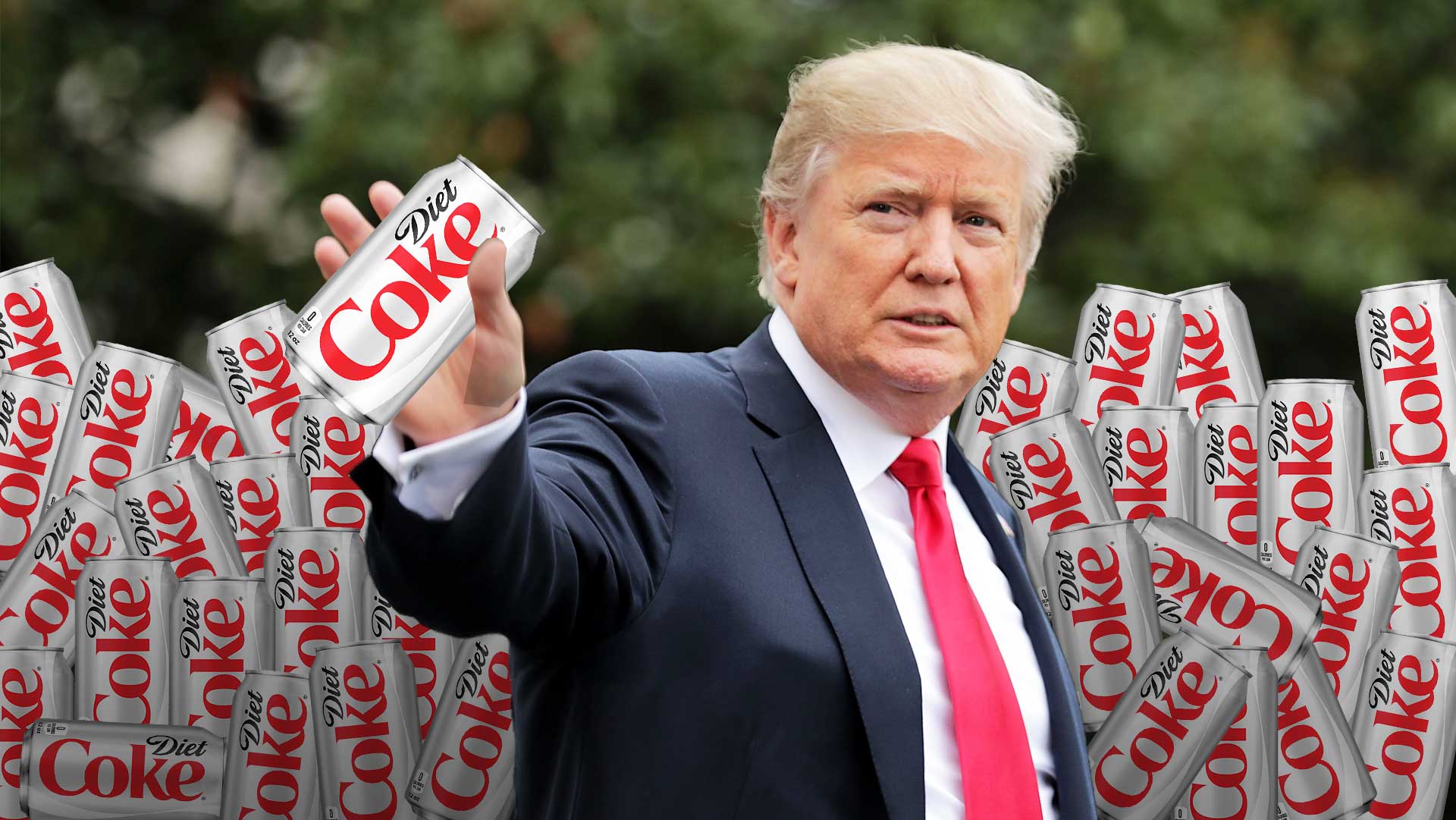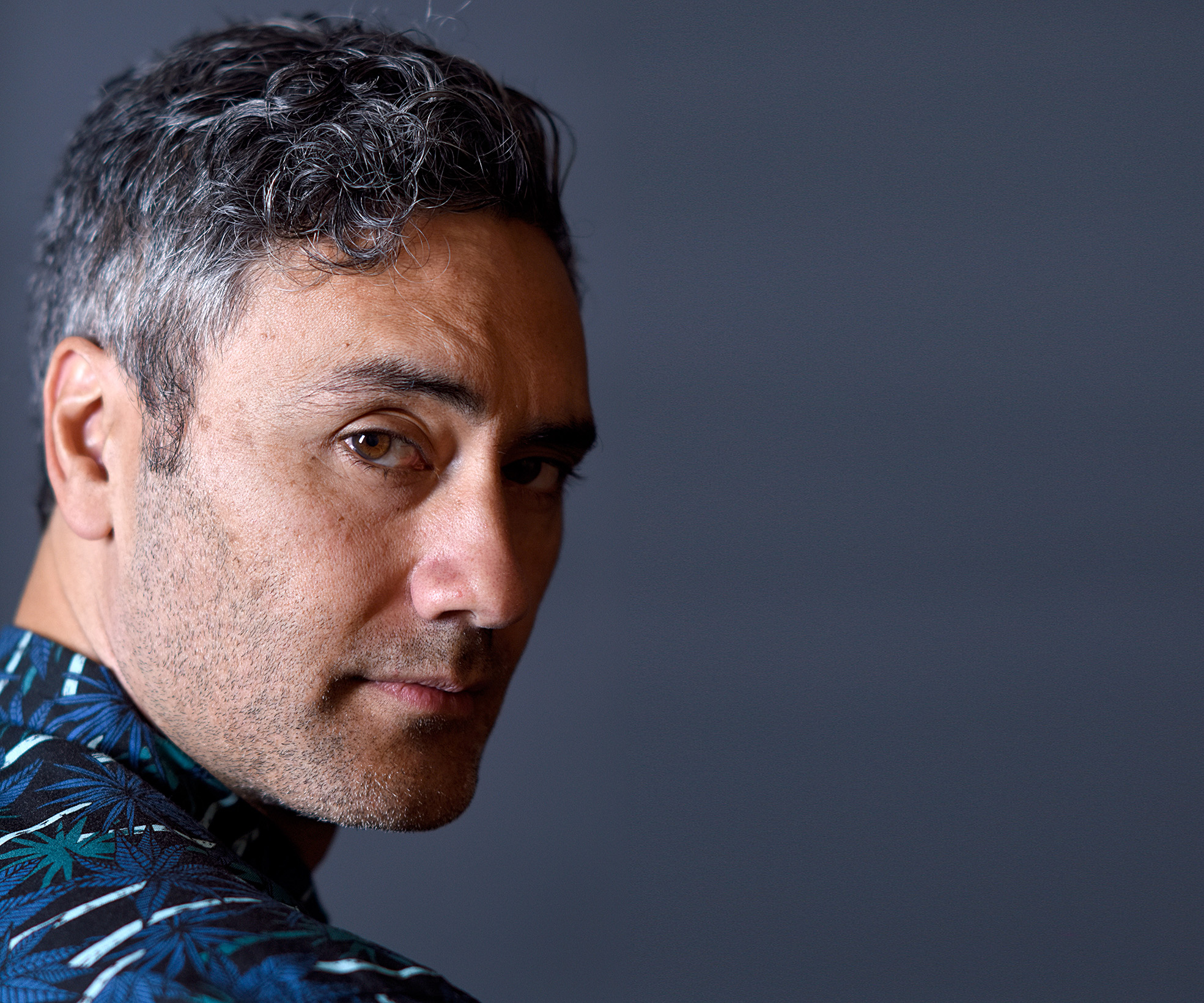Mark Twain famously said “there’s no such thing as a new idea.” And it turns out, in the case of Donald J. Trump’s 2016 presidential campaign, that statement has never been more true.
America’s 45th President claims to have come up with the catchcry “Make America Great Again” after watching Mitt Romney lose to Barack Obama in the 2012 election. Five days later he had it trademarked, setting into motion his road to the White House. But the origins of the slogan go back much further than that. All the way back to 1980, in fact, and another unlikely president – Ronald Reagan.
The link between the current and former president is a self-confessed “agent provocateur” and “dirty trickster” – Trump’s Machiavellian campaign advisor Roger Stone. A man who holds Richard Nixon up as one of his heroes, Stone’s history with the darker side of politics runs deep. At the tender age of 19 he was linked to the Watergate scandal, and continued to work closely with Nixon after he resigned the presidency. He idolises the man so much that he has a tattoo of ‘Tricky Dicky’s’ face on his back, which he’s only too happy to display at any opportune moment.
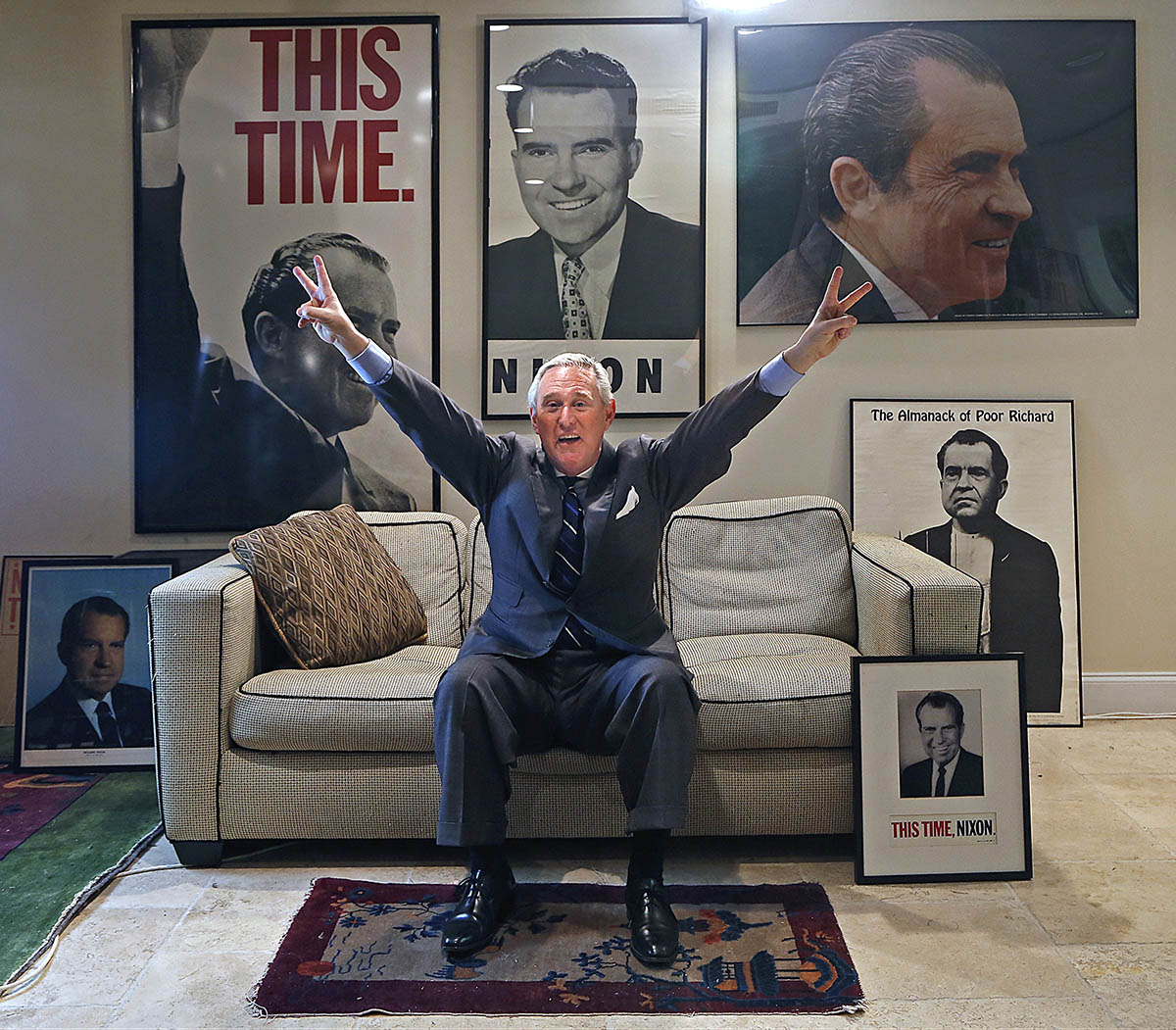
Stone is an avid supporter of Richard Nixon.
Stone’s politics is based on the populist idea of giving the people what they want. Democracy, says Fox News commentator Tucker Carlson, “is the process of appealing to the majority,” and Roger Stone gets that in a way that “most people who cover politics don’t.” He is the subject of a Netflix documentary ‘Get me Roger Stone,’ and anyone with even a passing interest in politics should give it a watch.
What most of us would rightly call a lie, Stone calls “disinformation.” It’s a tactic that has peppered Trump’s presidency ever since he decided to run for office. Claiming the turnout for his own inauguration was bigger than Barack Obama’s despite overwhelming photographic evidence to the contrary? Disinformation. Calling Mexican immigrants criminals and rapists? Disinformation. Suggesting Barack Obama’s birth certificate was fake and that he wasn’t an American citizen? Disinformation.
The idea of disinformation came to Stone at elementary school when he participated in a mock election for John F. Kennedy. He chose to back JFK over the favourite Richard Nixon because he was Catholic (Stone came from a Catholic family and thought that would please his parents), but also because “Kennedy’s hair was so much better than Nixon’s hair.” He won Kennedy the election by telling kids in the lunch line that Nixon had proposed having school on Saturday’s.
“For the first time ever I understood the value of disinformation. Of course I’ve never practised it since then,” he says with the hint of a wry smile.
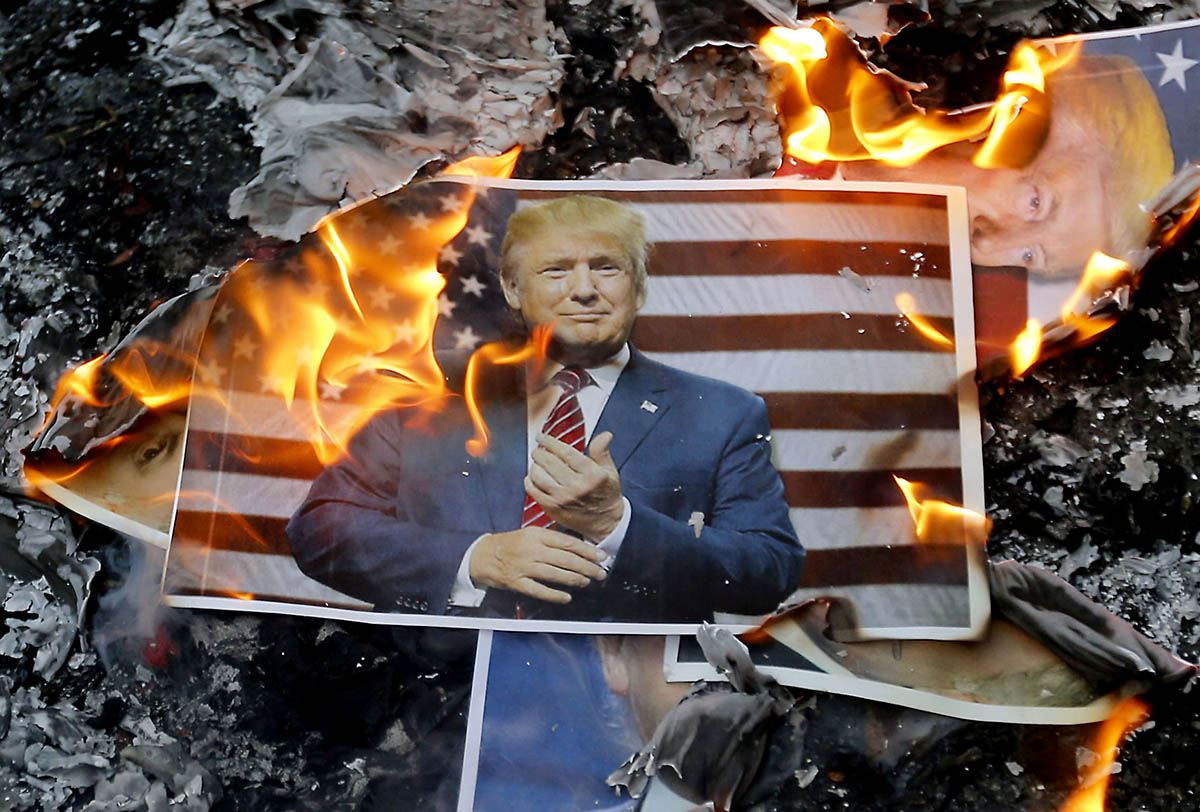
The Stone factor
In a 2017 interview with The Washington Post, Trump claimed not to have known that Reagan’s campaign slogan was “Let’s make America great again.” But anyway, he says dismissively, “he didn’t trademark it.”
It’s kind of like the old adage ‘If a tree falls in a forest and no one is around to hear it, does it make a sound?’
‘If a presidential candidate comes up with a campaign slogan but he doesn’t trademark it, did he ever really say it at all?’
“I think I’m somebody that understands marketing,” Trump said in his own defence. And he’s not wrong. His whole campaign was about marketing. It’s what propelled him to the White House. Who would have ever imagined it possible, when The Simpsons depicted Donald Trump as President in an episode in 2000 – a storyline which was meant to serve as a worst case scenario to the country – that it would actually, one day, be a reality.
“That just seemed like the logical last stop before hitting bottom,” Simpsons writer Dan Dan Greaney told Time magazine of the prophetic episode. “It was pitched because it was consistent with the vision of America going insane.
And insane it went.
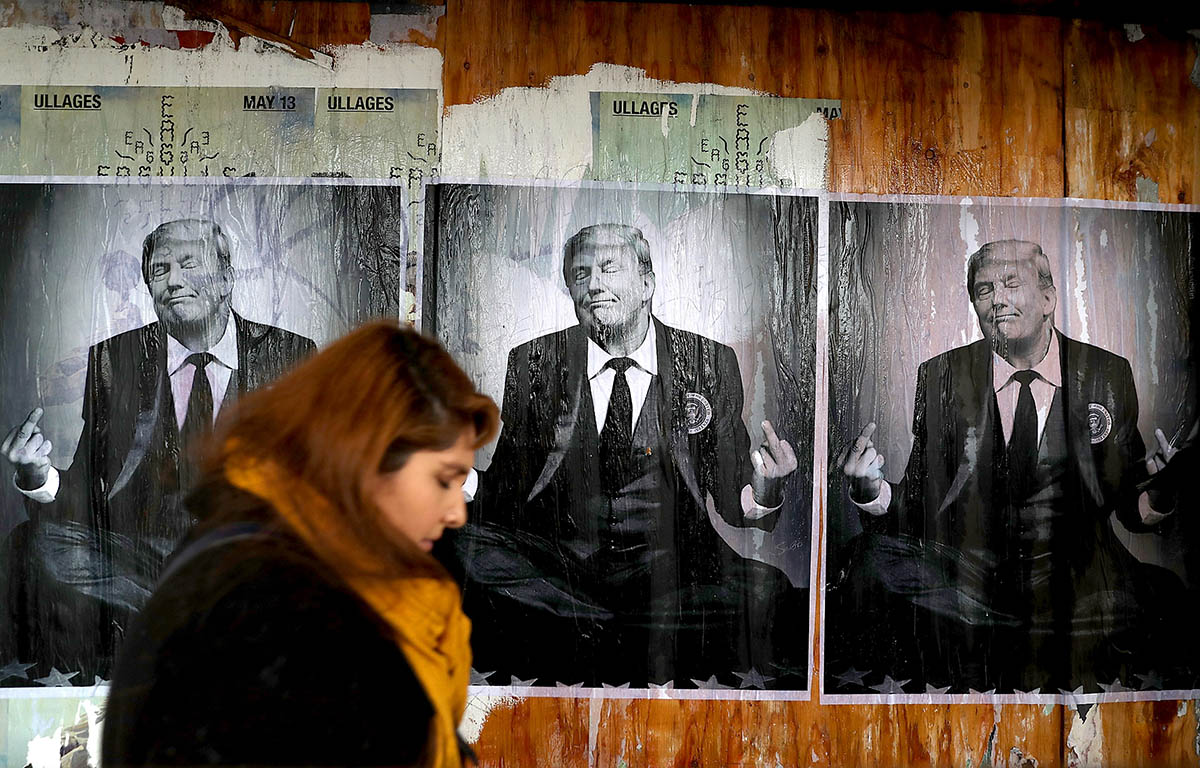
Roger Stone can claim a significant hand in delivering the Donald Trump we now know as president. He had encouraged him to run for years, as far back as 1987 when Trump released the bestselling book The Art of the Deal. What is it that the long-time political advisor saw in the controversial real estate mogul? Celebrity.
“15 seasons of The Apprentice not only makes him a smooth television performer, but think of the way he looked in that show,” explains Stone. “High backed chair, perfectly lit, great makeup, great hair. Decisive, making decisions, running the show. He looks presidential. Do you think voters – non sophisticates – make a difference between entertainment and politics? Politics is show business for ugly people.”
“In many respects Roger Stone created Donald Trump as a political figure,” says Jeffrey Toobin, writer from The New Yorker. “There is no doubt that in tone, in affect, in profile, the Trump candidacy was a pure Roger Stone production.”
The “tone” is certainly keenly felt. Some classic Stonisms include “One man’s dirty trick is another man’s political civic action,” and “Losers don’t legislate.”
The word “loser” has become synonymous with Donald Trump’s Presidency. Everyone from former FBI Director James Comey to his arch rival Hillary Clinton to the entire television network of CNN has been branded a loser by the Commander in Chief. In an extraordinary commitment to information journalism, the New York Times has collated a running list of every single time Trump has insulted people, places or things on Twitter. At last count it was at 548.
Roger Stone runs a similar Twitter warfare campaign to Trump, so much so that he was once banned from the platform for repeatedly threatening CNN news anchors. CNN and Hillary Clinton are just two of Trump and Stone’s mutual hates (Stone wrote a book called The Clintons’ War on Women which claimed, among other things, that Bill Clinton was a serial rapist and that Hillary covered it up). That similarity in “tone” that Jeffrey Toobin referred to is what brings us back to Reagan and his 1980 presidential campaign.
Roger Stone was responsible for running Reagan’s campaign in New Jersey, New York and Connecticut, playing a key role in recruiting voters and the ultimate success of the operation. The campaign is what first brought Stone and Trump together. Stone was looking for any help he could get to win the election and Donald, he says “was helpful in a dozen different ways,” including lending his plane so that nominating petitions could be filed to get Reagan on the ballot. “We became very good friends,” Stone told PBS of the relationship he formed with Trump during that time. “For those who say he’s not a conservative, he’s not a Republican, he was there in the Reagan revolution.”
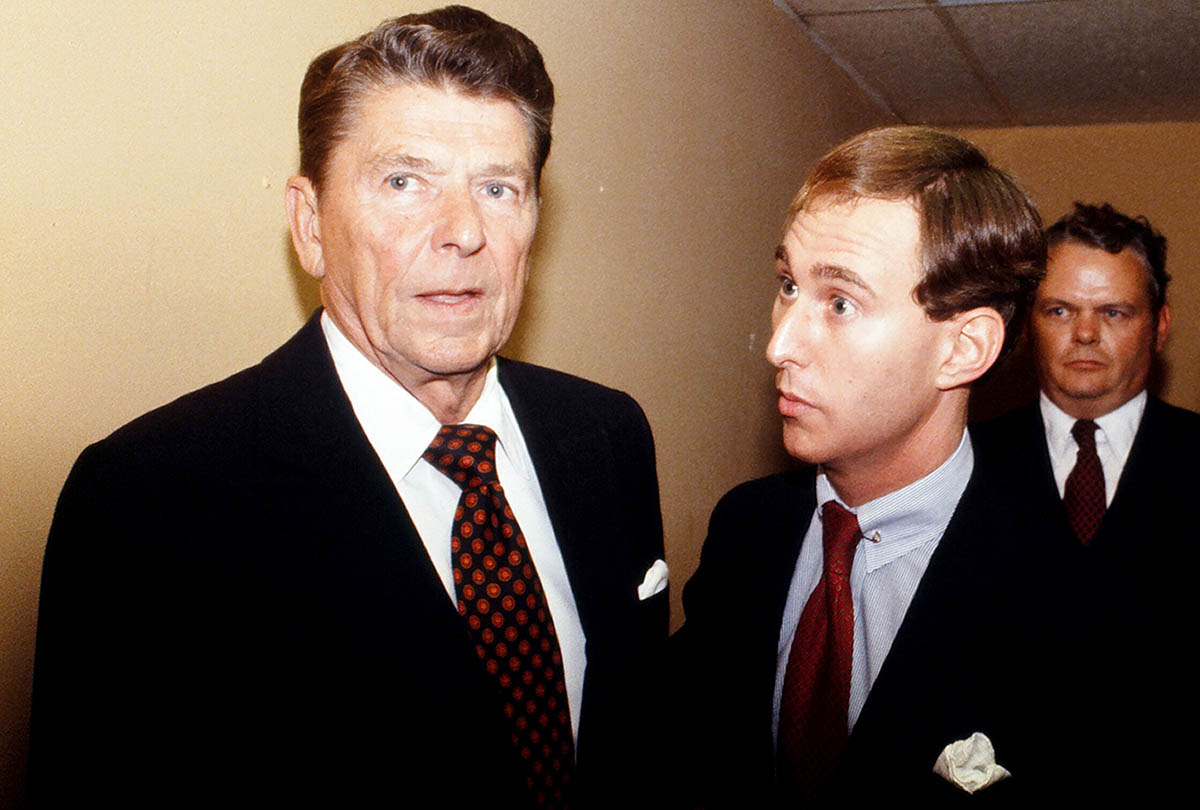
Stone with Ronald Reagan during the 1980 campaign.
Even though Trump claims to have come up with “Make America Great Again” himself – despite it being used so prominently in a previous campaign his own political advisor worked so closely on, and despite being involved in the periphery of the campaign himself – he hasn’t hesitated to jump on others he felt were trying to steal the slogan.
Back in 2015, before Donald had confirmed his own bid for the White House, Senator Ted Cruz delivered the line in a speech announcing his candidacy. “It’s going to take a new generation of courageous conservatives to help make America great again, and I’m ready to stand with you to lead the fight,” he said.
Trump took action, claiming “The line of ‘Make America great again,’ the phrase, that was mine, I came up with it about a year ago, and I kept using it, and everybody’s now using it, they are all loving it.”
Except it wasn’t his. Nor was he even the first candidate to use it since Reagan, because Bill Clinton also delivered the line during the announcement for his 1992 presidential campaign. He even used it in a radio ad for Hillary’s 2008 presidential primary campaign.
Minor details, though.
Looking ahead
Trump is already preparing for the 2020 election by trademarking the slogan “Keep America Great!”. Somewhat comically for Donald, however, is that his new slogan isn’t original either. It was the tagline for the 2016 horror movie The Purge: Election Year, a film based around one night a year when citizens can go out and commit murder without fear of repercussion.
Rather disturbingly it has echoes of a statement Trump himself made at a campaign rally in Iowa. Boasting about how smart and loyal his supporters are, he claimed “I could stand in the middle of 5th avenue and shoot somebody and I wouldn’t lose any voters.”
No doubt anyone who suggests otherwise is a loser.
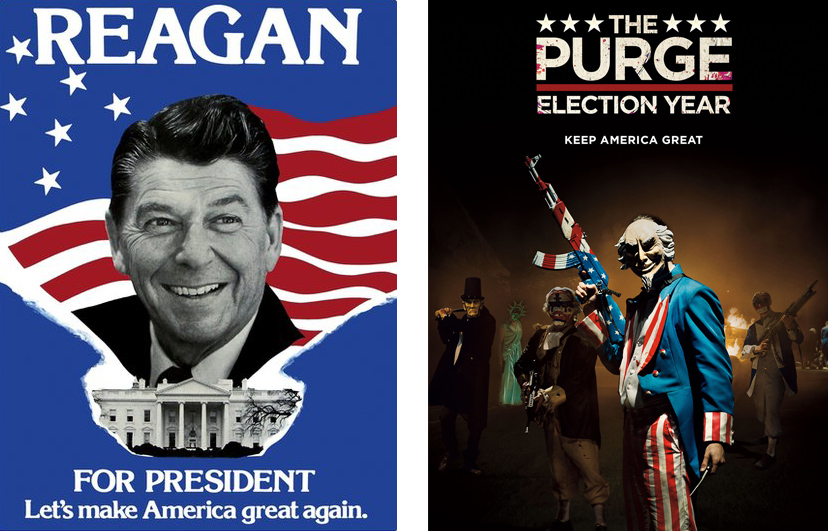
.jpg)
